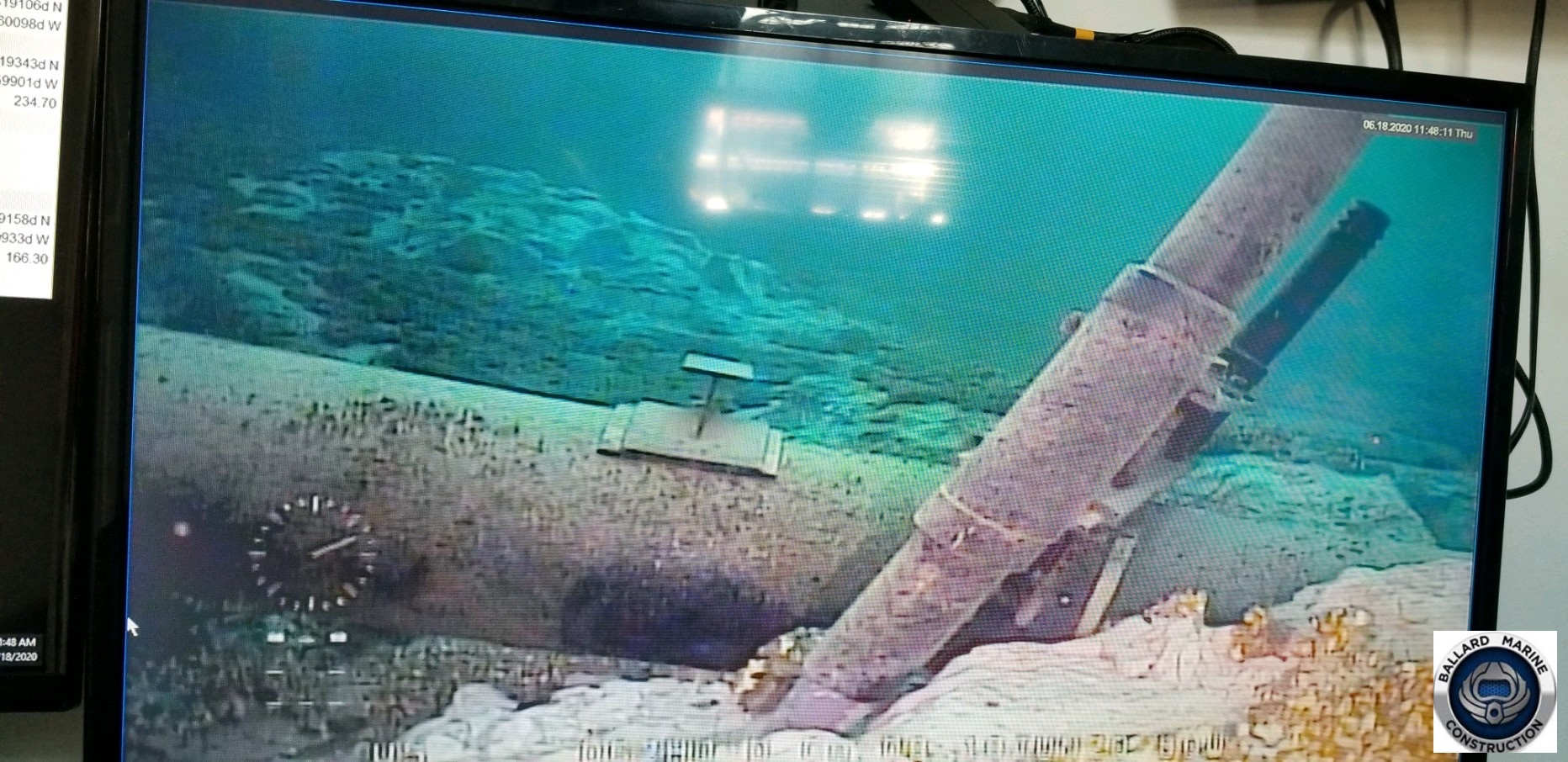Army Corps fast-tracks environmental review of Enbridge Line 5 tunnel
April 16, 2025
The U.S. Army Corps of Engineers is fast-tracking review for a Canadian energy firm’s plan to build a $750 million tunnel for its oil and gas pipeline on the bottom of the Great Lakes.
The decision comes after President Donald Trump’s declaration of a national energy emergency. The U.S. Army Corps of Engineers issued a notice Tuesday that the project will be subject to emergency permitting procedures in line with the order, shortening the timeline for review.
The project would replace a roughly 4-mile stretch of Enbridge’s pipeline that’s vulnerable to rupturing in the Straits of Mackinac. Line 5 runs 645 miles and carries up to 23 million gallons of oil and natural gas liquids daily from Superior to Sarnia, Ontario.
The project has been under review for five years, and the agency previously said it would issue a draft environmental review this year and a final decision in 2026. Under emergency permitting procedures, Corps Detroit district office regulatory chief Shane McCoy said it’s still working with Enbridge to determine new timelines, but he expects a draft environmental impact statement will be issued around June.
“All of the review is still being used in the analysis. It’s under the emergency orders. However, the timelines associated with our coordination and conducting those reviews are truncated,” McCoy said.
The Corps received more than 17,000 public comments during its initial review. The emergency procedures fast-track the process under the National Historic Preservation Act and other federal regulations.
Katie Otanez, Detroit district office regulatory project manager, said it’s still evaluating requirements of the National Environmental Policy Act under the emergency process when asked whether public hearings may be eliminated.
The emergency procedures allow 15 days for public input once the agency’s draft is released. The Army Corps could issue a decision 30 days after a final environmental impact statement is issued, but it’s unclear when that may be. The agency said the process will result in a “legally defensible and well-informed” decision on the project.

Photo courtesy of Enbridge via State of Michigan
This field is for validation purposes and should be left unchanged.
Enbridge reached a deal to build the Line 5 tunnel during former Michigan Republican Gov. Rick Snyder’s administration in 2018. A year later, Michigan Attorney General Dana Nessel sued to shut down Line 5 on behalf of Gov. Gretchen Whitmer.
A Michigan appeals court upheld permits for the project in February after Native tribes and environmental groups challenged their approval by the Michigan Public Service Commission. Enbridge re-applied for multiple permits this year.
Enbridge spokesperson Juli Kellner said in a statement that Line 5 is critical to the region.
“Refineries and propane facilities in the Great Lakes region rely on raw materials from Line 5 to produce refined products millions of people rely on every single day,” Kellner said.
Environmental groups condemned the agency’s decision to fast-track review of the project.
“The only energy ‘emergency’ the American people face is Trump’s efforts to disregard clean air and water safeguards in order to rush through dirty, dangerous fossil fuel projects,” Sierra Club’s Mahyar Sorour said in a statement. “The United States is already the largest oil producer and gas exporter in the world, yet Trump and his cabinet want to help corporate polluters rake in more profits while we suffer the very real public health and economic consequences.”
Seven tribes recently withdrew from federal consultation over the project’s review. The Army Corps said 20 tribes have taken part in its review of the tunnel.
Great Lakes tribes have said a permit for the project is “unacceptable” because the Straits of Mackinac are a sacred place to tribal nations and protected by a treaty with the federal government. They say the agency excluded review on the risk of an oil spill, dismissed the project’s impacts on climate change and engaged in “unlawful” review of cultural resources under the National Historic Preservation Act.
“The Corps’ agreement to establish a cooperating agency relationship with Tribal Nations appears to have been another ‘check-the-box’ exercise on its way towards permitting Enbridge’s proposed project,” Great Lakes tribes wrote in a March 21 letter.
A decision has yet to be issued in the state’s case after a Michigan judge heard oral arguments earlier this year. Michigan officials allege a 1953 easement for the pipeline’s operation violated the state’s public trust doctrine and should be revoked. Attorneys for Enbridge argue the company’s easement is valid.
In Wisconsin, the company is seeking to reroute Line 5 about 41 miles around the Bad River tribe’s reservation.
In November, the Wisconsin Department of Natural Resources granted key permits for the Line 5 reroute just days after another Enbridge spill in Jefferson County, which has released around 69,000 gallons of oil. The Bad River tribe and environmental groups are challenging permits issued for the project.
Supporters of the Line 5 reroute in northern Wisconsin say it will create 700 jobs during construction and a roughly $135 million economic impact. Opponents note Line 5 has had around 30 releases on land, spilling about 1 million gallons of oil.
Enbridge is also responsible for a 2010 spill that released more than 1.2 million gallons of oil into the Kalamazoo River in Michigan, as well as four aquifer breaches on the Line 3 replacement in Minnesota that released hundreds of millions of gallons of groundwater.
Enbridge has said Line 5 has never spilled in the Straits or in the Bad River on the tribe’s reservation.
Wisconsin Public Radio, © Copyright 2025, Board of Regents of the University of Wisconsin System and Wisconsin Educational Communications Board.
Search
RECENT PRESS RELEASES
Related Post




